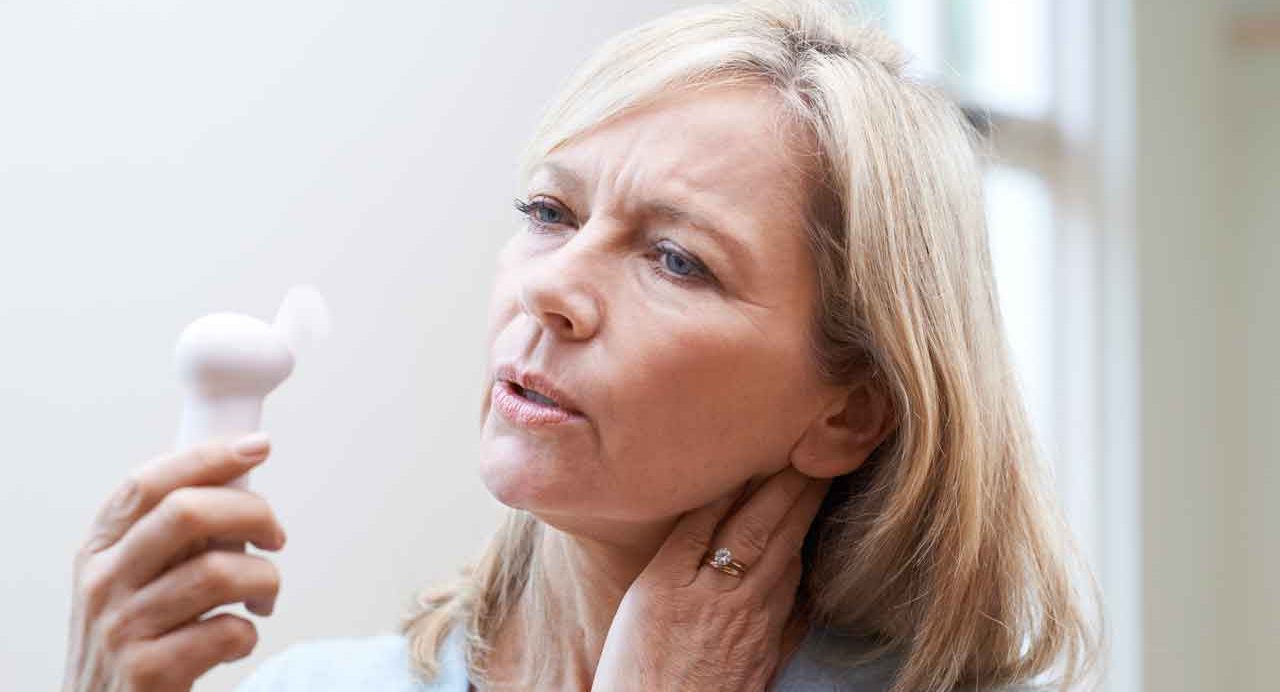When Does Menopause Start?

The question “when does menopause start?” doesn’t have an exact answer. The average age of menopause symptoms (like hot flashes in women) starting is 45 to 55.
Menopause is technically a point in time when a woman has not menstruated for one year. However, you’ll likely experience signs alerting you to when menopause does start long before you are through having periods.
Hot flashes in women and other symptoms and changes in your body may be worrisome, but remember menopause is not a disease or health disorder but a normal part of aging. Learning about what to from expect menopause, and when, can help you cope and make the transition easier.
YOU MIGHT ALSO LIKE: Acupuncture for Menopause May Ease Symptoms
The average age of menopause
The average age of menopause — when menopause signs like skipped periods and hot flashes first begin — is between 45 and 55, according to the National Institute on Aging. This time of transitioning, known as perimenopause, usually lasts about seven years. However, for some women, it may up to14 years.
While it’s common to talk about going through menopause, the medical term “menopause” actually means you have not had any menstrual periods for 12 months. The U.S. Department of Health Human Services Office on Women’s Health points out the average age of menopause, using the medical definition, is 52 for women in the U.S.
Signs of early menopause
Menopause is called premature or early menopause when it occurs at age 40 or even younger. About one percent of women in the U.S. experience early menopause.
Early menopause can be genetic (it might “run” in your family), or it may have a metabolic or autoimmune cause. If you experience signs of early menopause, such as hot flashes and missed or skipped periods not related to pregnancy, you should contact your doctor for a thorough health evaluation, according to the North American Menopause Society.
Menopause can also start at a much younger than normal age if you undergo a hysterectomy or surgical removal of your ovaries, which produce hormones. In this case, symptoms of menopause develop immediately after surgery, unless you take hormones.
Perimenopause: The early signs of menopause
Women, usually in their mid to late 40s, may notice several early signs that menopause is around the corner. During this time of life, perimenopause, the body’s production of estrogen and progesterone decrease.
The result can be symptoms that are barely noticeable for some women. Others may experience a variety of early signs of menopause that happen frequently and can include:
- Trouble sleeping
- Moodiness
- Irregular menstrual periods that may last longer or be shorter; periods my stop for months and start again
- Vaginal dryness (which may cause painful sex)
- Less interest in sex
- Hot flashes
What are hot flashes?
Hot flashes in women are probably the symptom most identified with menopause. Hot flashes cause a sudden feeling of heat, either in just the upper part of your body and head, or all over the body. Your face and neck may be visibly flushed, and red blotches sometimes may emerge temporarily on your chest, back, and arms. You may experience heavy sweating followed by chills, too.
Hot flashes can be minor or so strong they wake you up from a deep sleep — which is why nocturnal hot flashes are often called “night sweats.”
Hot flashes in women can be as brief as 30 seconds or last up to 10 minutes. And you can experience them just once or twice a week, several times a day, or even many times an hour.
What causes hot flashes?
If you are waking up with night sweats or dreading you’ll turn beet red and start sweating at some inopportune time during the day, you probably wonder what causes hot flashes.
Hot flashes in women are not fully understood but are known to be linked to the hormonal changes of menopause. During menopause, the hypothalamus, the part of the brain that regulates body temperature, is believed to trigger hot flashes in women, according to the North American Menopause Society.
When the hypothalamus mistakenly senses a woman is too warm, it signals blood vessels close to the surface of the skin to dilate so body heat can be released. The result is a hot flash.
The increased blood flow to surface skin causes a red, flushed look and may also cause a woman to sweat and then have chills after the hot flash begins to subside.
Hot flashes in woman may last a few years after menopause. Whether you are experiencing the early signs of menopause or if your periods have stopped, if you are experiencing hot flashes that disrupt your sleep and, possibly, your life, talk to your doctor about treatment options.
YOU MIGHT ALSO LIKE: Making Menopause Tolerable: Remedies You Should Know About
Updated:
February 28, 2020
Reviewed By:
Janet O’Dell, RN